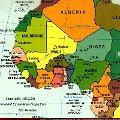Ghana A Model For Africa
President Barack Obama makes his first trip to sub-Saharan Africa this week with a visit to Ghana where he will speak to that nation's parliament. Our two countries have long enjoyed friendly relations, and the president will use the occasion to recognize the progress Ghana has made in democratization and the rule of law that has established it as a model for both Africa and the world.
Ghana was the first state in the region to gain independence and today is one of the most vibrant economic and politically important nations in West Africa. President John Atta Mills, elected in January in the fifth election and third peaceful transition of power since the end of military rule, has shown a commitment to the democratic principles that ensure a nation's stability. Much of this progress stems from the nation's adoption of good governance systems and practices. There is a direct link between governance and prosperity. Nations hampered by corruption and political instability cannot grow their economies. Thanks to, among other things, its predictable regulatory system and independent judiciary, Ghana has become a magnet for both domestic and foreign investment. Those investments are helping to turn Ghana into a regional economic hub, develop local industries and create jobs for the Ghanaian people.
On the international front, Ghana has been a strong contributor to regional stability and to international peacekeeping missions both in Africa and elsewhere.
This is not to say that Ghana does not face challenges. The government faces crucial questions about how best to develop newly-discovered petroleum reserves and reduce high rates of domestic poverty, as well as the evolution of its role as a voice in support of democracy, good governance, and human rights in the developing world.
What is certain, however, is that the commitment of all Ghanaians to transparent and democratic governance will enable the nation to make the optimal choices and continue its path to development. Countries such as Ghana that are stable, where leaders understand that they are accountable to the people, and national institutions that are stronger than any one person or political party have shown they produce positive results for their people. Ghana's neighbors should take note.

